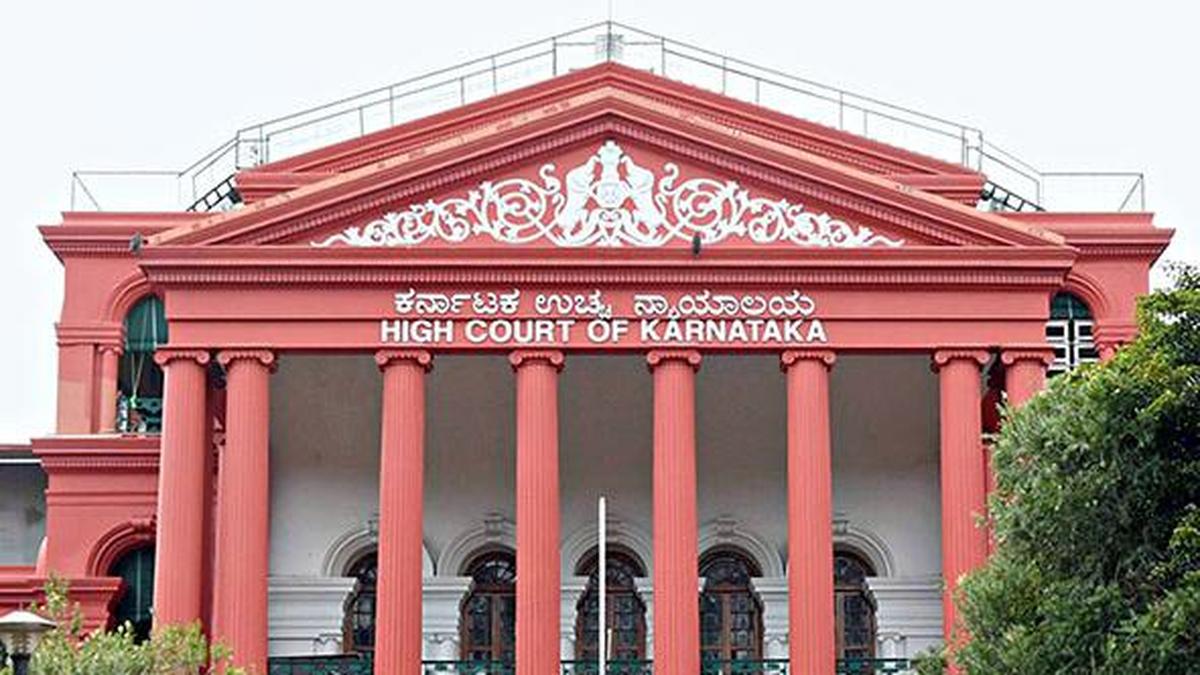
How can Excise Department seize truckloads of liquor citing model code of conduct when it gave permit for transportation, asks Karnataka High Court
The Hindu
The High Court of Karnataka has termed as the “abuse of process of law” the strange action of the State Excise Department, which had seized a truckload of liquor citing violation of the model code of conduct (MCC) for elections even though the department itself had issued the permit for transportation of the liquor load when the MCC was in force.
The High Court of Karnataka has termed as the “abuse of process of law” the strange action of the State Excise Department, which had seized truckloads of liquor citing the violation of the model code of conduct (MCC) for elections even though the department itself had issued the permit for transportation of the liquor load when the MCC was in force.
“If at all the petitioner company was not permitted to deliver the liquor to Karnataka State Beverages Corporation Ltd., (KSBCL) during the period of the MCC, the department could not have issued the permit in favour of the petitioner,” the court observed while quashing the two first information reports (FIRs) registered against a company on March 18.
Justice M.G. Uma passed the order while allowing the petitions filed by Kalpatharu Breweries and Distilleries Pvt. Ltd., Somapura Industrial Area, Dobbspet, Bengaluru Rural district.
The petitioner-company was authorised to supply liquor — whisky, beer, etc. — only to the KSBCL, and the Excise Department on March 16 issued permits, which were valid till March 22, to transport two truckloads of liquor consignment worth ₹36 lakh each to the KSBCL.
However, the sub-inspector of excise, Nelamangala, on March 18 seized the liquor bottles loaded on two trucks parked on the premises of the company, for dispatching them to the KSBCL as per the permits granted for their transportation, and registered FIRs against the company under Section 32 (illegal transport) and 34 (illegal possession) of the Karnataka Excise Act, 1965.
“Even if the first information is accepted as it is in the light of the invoice and the permit produced by the petitioner, no offence either under Section 32 or under Section 34 of the Karnataka Excise Act, 1965, is made out,” the court observed while holding that prima facie it is the case of abuse of the process of law by the department in registering the case citing violation of the MCC.

“Writing, in general, is a very solitary process,” says Yauvanika Chopra, Associate Director at The New India Foundation (NIF), which, earlier this year, announced the 12th edition of its NIF Book Fellowships for research and scholarship about Indian history after Independence. While authors, in general, are built for it, it can still get very lonely, says Chopra, pointing out that the fellowship’s community support is as valuable as the monetary benefits it offers. “There is a solid community of NIF fellows, trustees, language experts, jury members, all of whom are incredibly competent,” she says. “They really help make authors feel supported from manuscript to publication, so you never feel like you’re struggling through isolation.”

Several principals of government and private schools in Delhi on Tuesday said the Directorate of Education (DoE) circular from a day earlier, directing schools to conduct classes in ‘hybrid’ mode, had caused confusion regarding day-to-day operations as they did not know how many students would return to school from Wednesday and how would teachers instruct in two modes — online and in person — at once. The DoE circular on Monday had also stated that the option to “exercise online mode of education, wherever available, shall vest with the students and their guardians”. Several schoolteachers also expressed confusion regarding the DoE order. A government schoolteacher said he was unsure of how to cope with the resumption of physical classes, given that the order directing government offices to ensure that 50% of the employees work from home is still in place. On Monday, the Commission for Air Quality Management in the National Capital Region and Adjoining Areas (CAQM) had, on the orders of the Supreme Court, directed schools in Delhi-NCR to shift classes to the hybrid mode, following which the DoE had issued the circular. The court had urged the Centre’s pollution watchdog to consider restarting physical classes due to many students missing out on the mid-day meals and lacking the necessary means to attend classes online. The CAQM had, on November 20, asked schools in Delhi-NCR to shift to the online mode of teaching.









